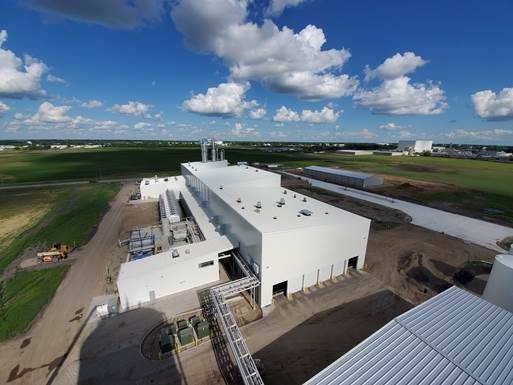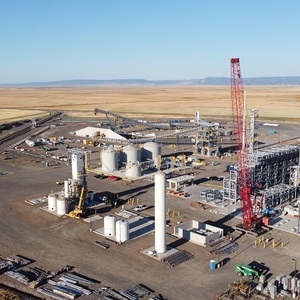Red Rock, Shell enter sales agreement for renewable fuel



SOURCE: Shell
October 8, 2020
BY Shell
Red Rock and Shell have entered into a cellulosic fuel purchase and sale agreement in which Shell will purchase sustainable aviation fuel (SAF) and cellulosic renewable diesel fuel from Red Rock’s new biorefinery in Lakeview, Oregon. Shell will distribute the SAF to Red Rock’s existing airline customers and market Red Rock’s cellulosic renewable diesel fuel.
By combining Red Rock’s production capabilities with Shell’s technical and commercial expertise and world-class supply chain, the companies are demonstrating how working together is enabling the production and distribution of SAF and cellulosic renewable diesel and supporting the decarbonization of aviation and heavy transport.
Advertisement
Advertisement
“We are excited to have Shell join our strong team of project partners on our Lakeview biorefinery,” said Terry Kulesa, CEO of Red Rock. “With its operational capabilities and global supply chain expertise, Shell is ideally positioned to support us in helping make low-carbon SAF and cellulosic renewable diesel more widely available to airlines and heavy transport companies who are committed to reducing emissions and tackling climate change.”
Red Rock’s biorefinery is scheduled for completion early next year. Once operational, it will be the world’s first commercial scale plant to utilize waste woody biomass from forests at risk of wildfire to create SAF and cellulosic renewable diesel.
“This has been one of the most devastating wildfire seasons on record,” said Kulesa. “We have seen wildfires grow in intensity, acreage, and damage to public health and the environment. One of the many potential benefits of the plant is to reduce the waste woody biomass lying on the forest floor which may help to mitigate the spread of wildfires.”
Advertisement
Advertisement
“Sustainable aviation fuel (SAF) is crucial to aviation’s success in reaching net zero emissions by 2050, alongside new technologies and high-quality carbon credits. But to enable SAF to fulfil its potential we need to be proactive and resolute in finding opportunities to increase availability of SAF today and tomorrow,” said Anna Mascolo, President of Global Aviation at Shell. “Increasing SAF is dependent on collaboration across the whole value chain. We are proud to work together with Red Rock to support the development of their innovative new production facility in Lakeview, Oregon.”
In general, lifecycle carbon emissions from SAF and cellulosic renewable diesel are expected to be up to 80 percent lower than conventional jet fuel.[1] The SAF will be supplied to airports through existing airport infrastructure and can be used blended by airlines without requiring technical modification to their current fleet.
Related Stories
CoBank’s latest quarterly research report, released July 10, highlights current uncertainty around the implementation of three biofuel policies, RFS RVOs, small refinery exemptions (SREs) and the 45Z clean fuels production tax credit.
The U.S. Energy Information Administration maintained its forecast for 2025 and 2026 biodiesel, renewable diesel and sustainable aviation fuel (SAF) production in its latest Short-Term Energy Outlook, released July 8.
XCF Global Inc. on July 10 shared its strategic plan to invest close to $1 billion in developing a network of SAF production facilities, expanding its U.S. footprint, and advancing its international growth strategy.
U.S. fuel ethanol capacity fell slightly in April, while biodiesel and renewable diesel capacity held steady, according to data released by the U.S. EIA on June 30. Feedstock consumption was down when compared to the previous month.
XCF Global Inc. on July 8 provided a production update on its flagship New Rise Reno facility, underscoring that the plant has successfully produced SAF, renewable diesel, and renewable naphtha during its initial ramp-up.
Upcoming Events










